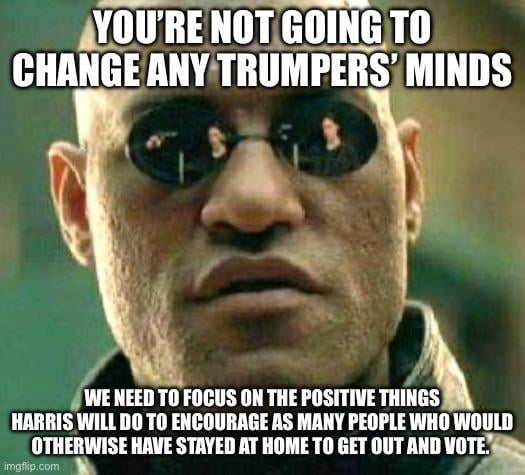this post was submitted on 14 Oct 2024
2 points (100.0% liked)
Political Memes
5447 readers
3009 users here now
Welcome to politcal memes!
These are our rules:
Be civil
Jokes are okay, but don’t intentionally harass or disturb any member of our community. Sexism, racism and bigotry are not allowed. Good faith argumentation only. No posts discouraging people to vote or shaming people for voting.
No misinformation
Don’t post any intentional misinformation. When asked by mods, provide sources for any claims you make.
Posts should be memes
Random pictures do not qualify as memes. Relevance to politics is required.
No bots, spam or self-promotion
Follow instance rules, ask for your bot to be allowed on this community.
founded 1 year ago
MODERATORS
you are viewing a single comment's thread
view the rest of the comments
view the rest of the comments

From what I'm reading if may have some positive effect on voter share and possibly a negative effect on voter turnout. And that positive messages have have a positive effect on turnout. Isn't that the claim meme?
And, historically, Democrats win with greater turnout. At least as far as I'm aware.
Disclaimer: I've only spent 20 minutes on this. A properly measured response would take longer.
References
How Much Do Campaign Ads Matter?
The Effects of Negative Political Campaigns: A Meta-Analytic Reassessment
This 2007 meta analysis is the most recent meta analysis I could find. It throws into question both claims, that negative ad have a positive effect on voter and negative effect on turnout. There's been a lot of studies since then, but this still gets cited.
Positive Spillovers from Negative Campaigning